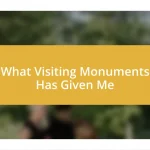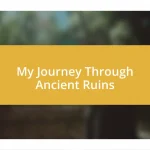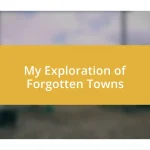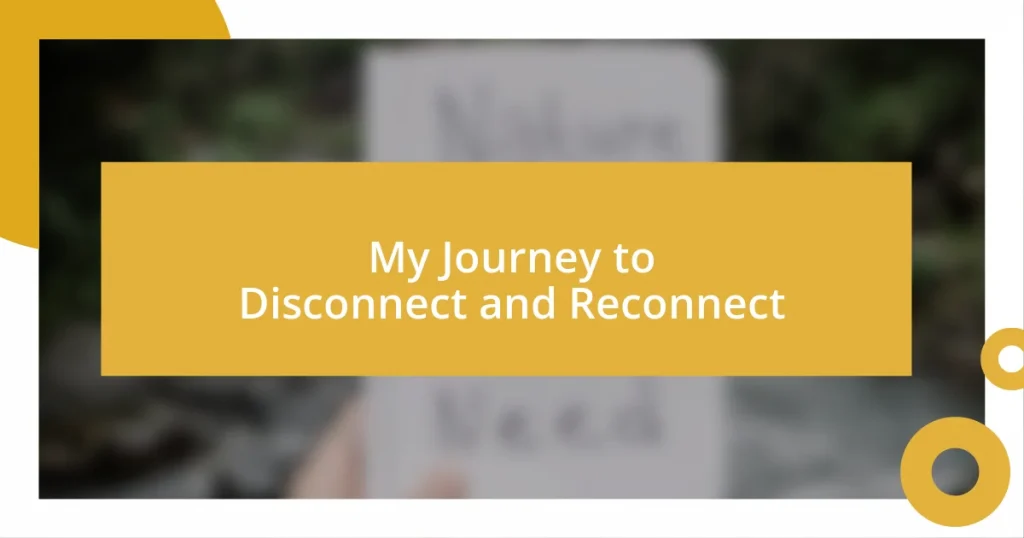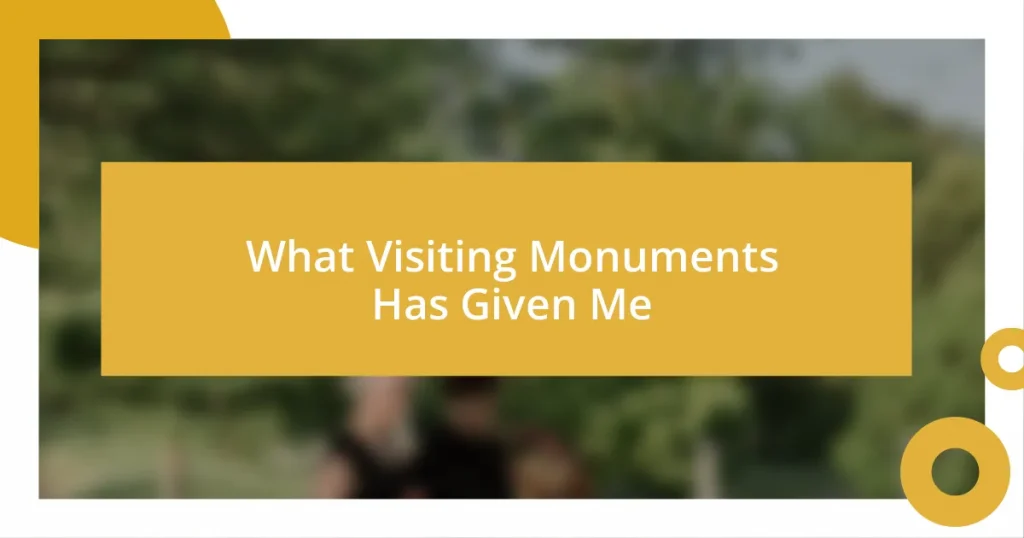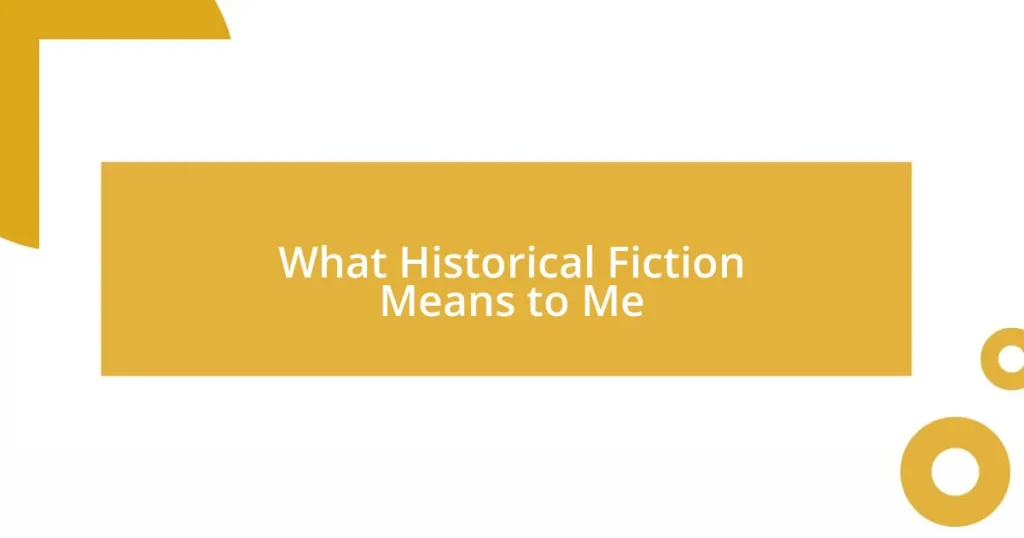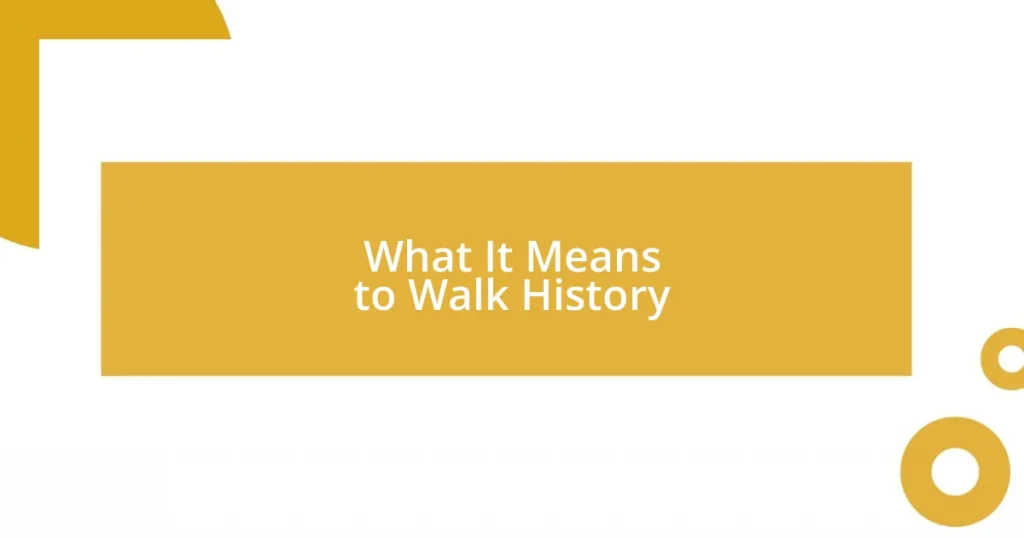Key takeaways:
- Disconnecting from technology can lead to emotional clarity and a deeper connection with oneself, nature, and others.
- Setting boundaries around technology use enhances real-world relationships and helps reclaim mental space.
- Engaging in creative activities, nature immersion, and journaling fosters self-discovery and personal growth.
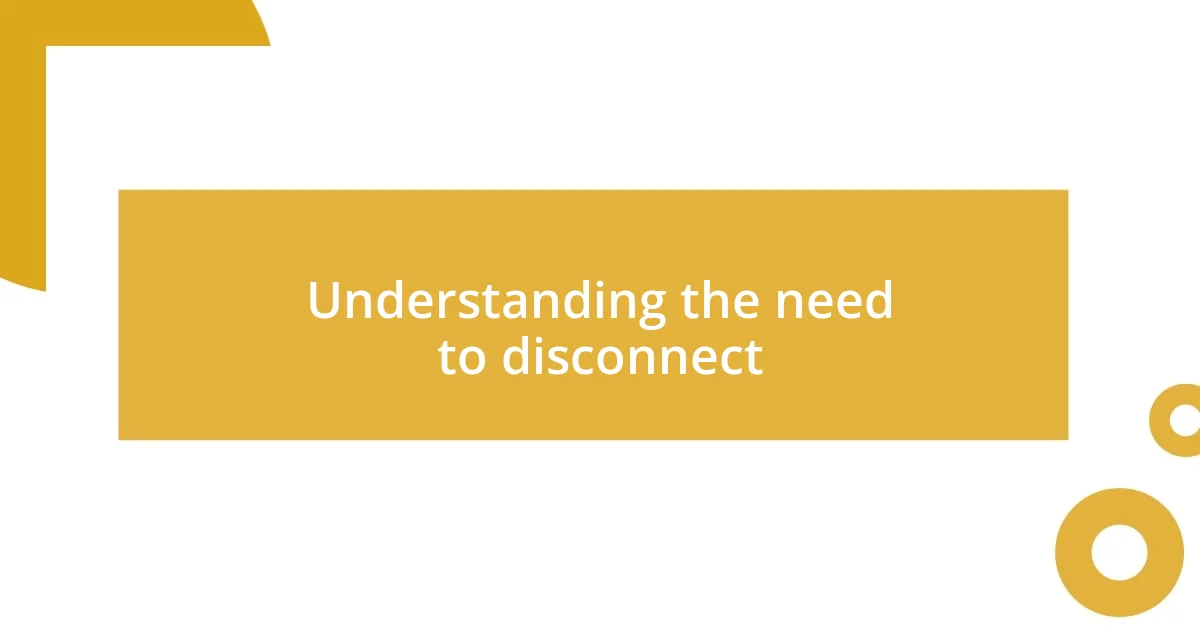
Understanding the need to disconnect
Life can often feel overwhelmingly fast-paced, can’t it? I remember a time when I found myself glued to screens for hours every day. The constant barrage of notifications created this strange sense of urgency that left me drained and anxious, making me realize just how essential it is to step back and disconnect.
To me, disconnecting isn’t just about technology—it’s about peeling away the layers of noise in our lives. I once spent an entire weekend without my phone, and although it felt unsettling at first, I slowly discovered a world filled with vibrant colors, sounds, and moments that I had overlooked. Isn’t it curious how disconnection can open up a pathway to genuine connection, whether with ourselves, nature, or others?
When I finally prioritized disconnecting, I noticed a profound shift in my emotional state. The clarity that comes from untangling oneself from the digital web can be liberating. It raises the question: what treasures might we uncover about ourselves when we allow for that space?
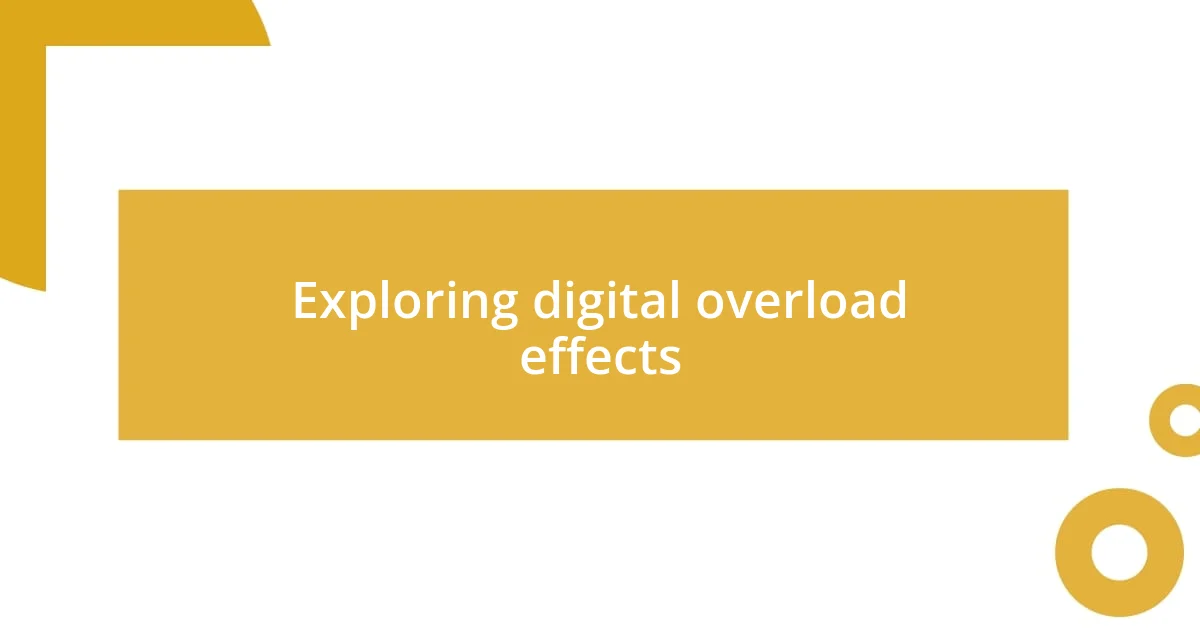
Exploring digital overload effects
Exploring digital overload effects can truly open our eyes. I often reflect on how much time I spent mindlessly scrolling through social media, feeling a mix of jealousy and inadequacy as I compared my life to those perfectly curated posts. It’s astonishing how digital overload can warp our self-perception, leaving us feeling empty rather than connected. Just think about it—have you ever caught yourself feeling more alone in a crowded online space than you would in a room full of friends?
As I navigated through this overwhelming digital landscape, I started noticing physical effects too. My sleep quality plummeted after spending late nights on my devices, leading to groggy mornings that dulled my creativity and focus. This cycle of fatigue made me realize that digital overload doesn’t just clutter our minds; it’s a thief of our wellbeing. Have you ever felt that moment when you realize that all those late-night notifications could be replaced by restful sleep?
The emotional toll can also weigh heavily. I experienced bursts of anxiety that escalated through endless digital engagement, leaving me feeling like a puppet on strings. When I finally decided to step back, the crispness of clarity came rushing in. I discovered a newfound resilience and emotional balance that I had no idea was possible. The question remains: how much more vibrant could our lives be if we actively curbed that digital noise?
| Digital Overload Effects | Emotional Responses |
|---|---|
| Increased Anxiety | Feelings of Isolation |
| Poor Sleep Quality | Exhaustion and Fatigue |
| Reduced Attention Span | Frustration and Irritability |
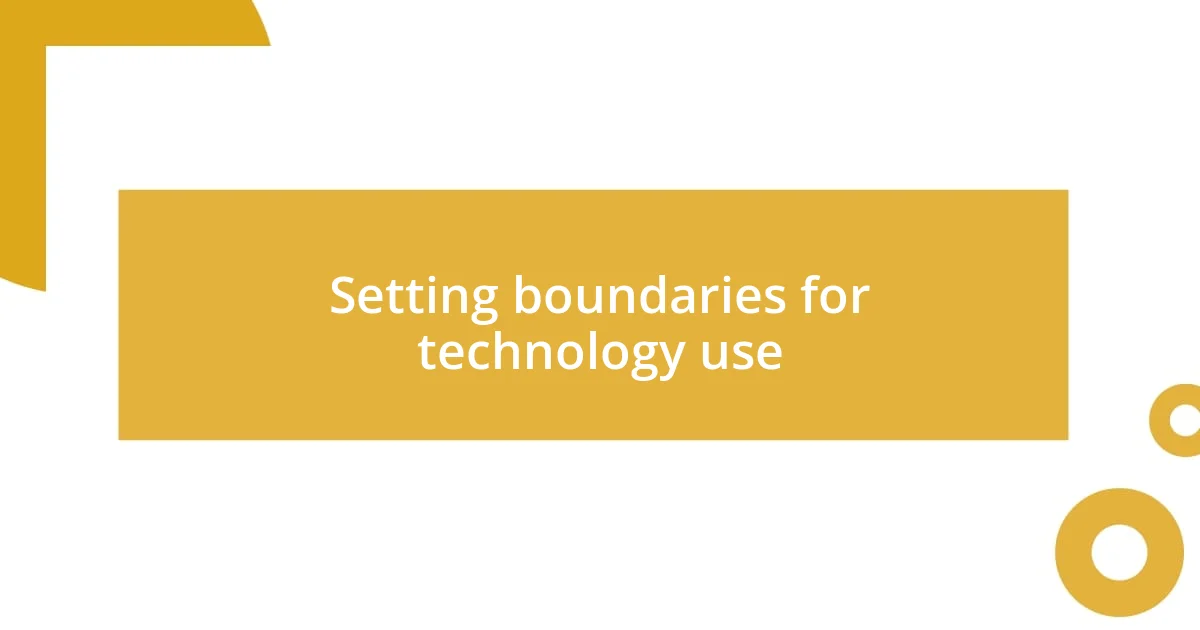
Setting boundaries for technology use
Setting boundaries for technology use is essential for reclaiming our time and mental space. I remember when I first implemented specific limits on my phone usage. It was a chilly Thursday evening when I decided to mute all notifications after 7 PM. At first, it felt like cutting off a lifeline, but soon enough, I realized I was gifting myself valuable moments of peace. This simple boundary allowed me to dive into a good book or even take evening walks without the buzz of my device pulling me back into the digital realm.
To further manage my tech usage, I found it helpful to set clear boundaries. Here’s what worked for me:
- Designate tech-free zones, like the dining table or the bedroom, to foster meaningful connections with loved ones.
- Schedule specific times for checking emails and social media, which helps prevent aimless scrolling throughout the day.
- Limit screen time during family activities, ensuring that moments together are fully engaged without distractions.
- Use apps to track and control my screen time, giving me insights into my habits and helping me stay accountable.
Establishing these boundaries not only improved my focus but also enriched my connections in the real world. I discovered a deeper appreciation for my surroundings and even how my relationships began to flourish without the constant need for digital interaction. Embracing these limits has been one of the most rewarding choices I’ve made on my journey to reconnect.
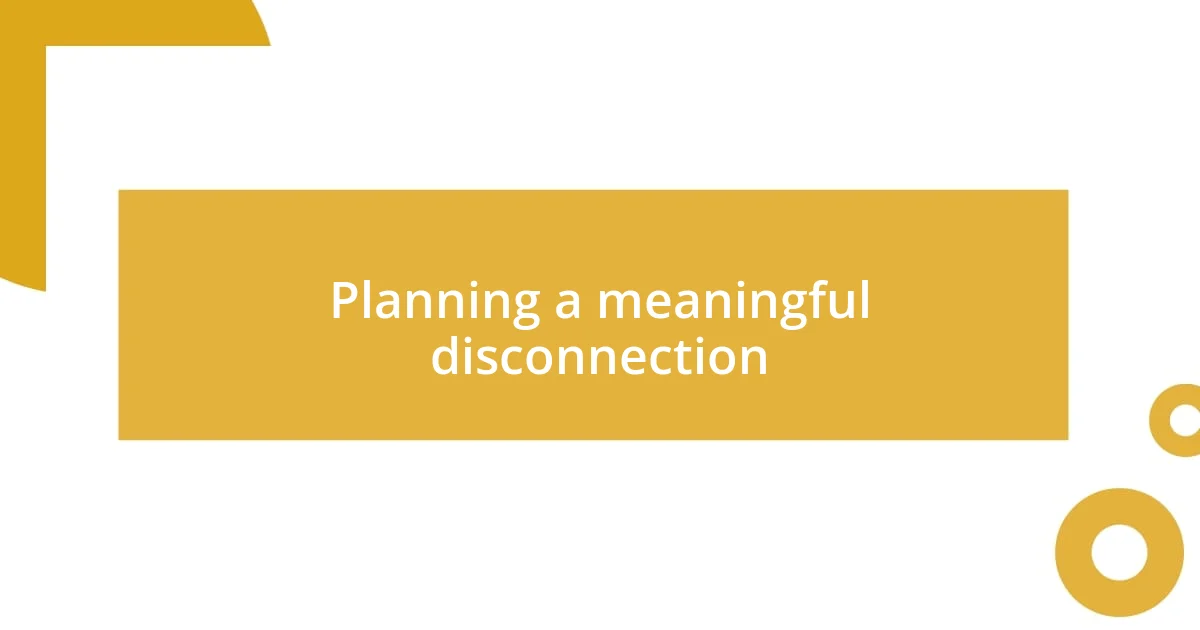
Planning a meaningful disconnection
Planning a meaningful disconnection requires thoughtfulness and intention. I recall a weekend when I plotted out my entire disconnection strategy—everything from finding a serene location to unplugging my devices. With my backpack filled with books and a journal, I felt a mixture of excitement and apprehension. Isn’t it curious how stepping away can feel both liberating and daunting at the same time?
Choosing the right time is crucial. I remember tracking my own energy levels and noticing that Sundays made the perfect backdrop for disconnecting. The calm before the week began created a natural rhythm; watching the sunset while journaling felt like a soothing reset. Have you ever realized that a single day offline can rejuvenate your entire week? I’d argue it truly can.
Finally, I learned that having a plan for the activities I wanted to enjoy while disconnected was essential. Instead of leaving my days open-ended, I embraced exploring nature, practicing yoga, or cooking new recipes. These activities didn’t just fill the void of time; they nourished my spirit and creativity. Just think—what passions could you rekindle if you stepped away from the digital noise?
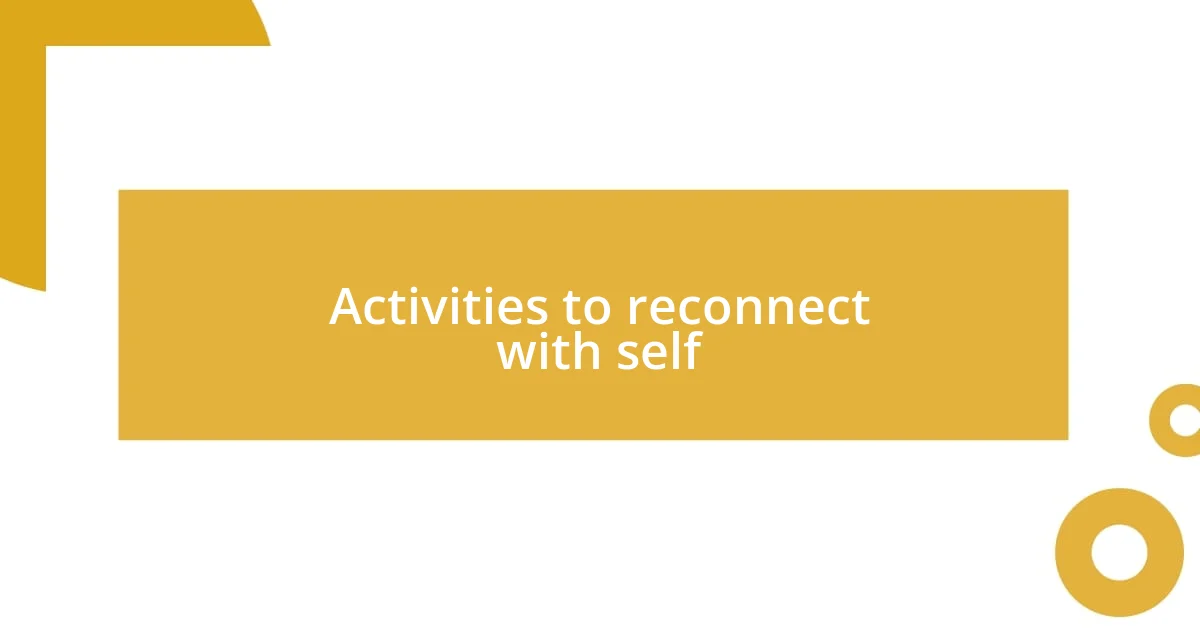
Activities to reconnect with self
Engaging in creative activities can profoundly help reconnect with our true selves. I vividly recall a weekend spent painting after a long hiatus. As I dipped my brush into vibrant colors, it felt like I was rediscovering a part of me that had been tucked away. Have you ever experienced that rush of emotion when creating something purely for yourself? It’s like breathing life back into your spirit, reminding you of your unique voice and perspective.
Another powerful avenue to reconnect with self is through nature immersion. I took a hike one Saturday morning, leaving behind the hustle of everyday life. With each step, I felt the weight of my worries decrease. It was during a moment of stillness, watching leaves dance in the wind, that I realized how much I craved this connection to the earth. Have you thought about how nature can serve as a canvas for reflection? It often invites us to pause and listen to our inner thoughts.
Lastly, journaling has been a transformative practice for me. I remember sitting by a cozy fire, pen in hand, pouring out my heart and thoughts onto the page. It felt like a conversation with myself, deepening my understanding of my emotions and desires. Doesn’t it feel freeing to articulate what often goes unspoken? Just five minutes of reflection each day can be a powerful tool to uncover insights about your journey, helping you navigate the path ahead with clarity and purpose.
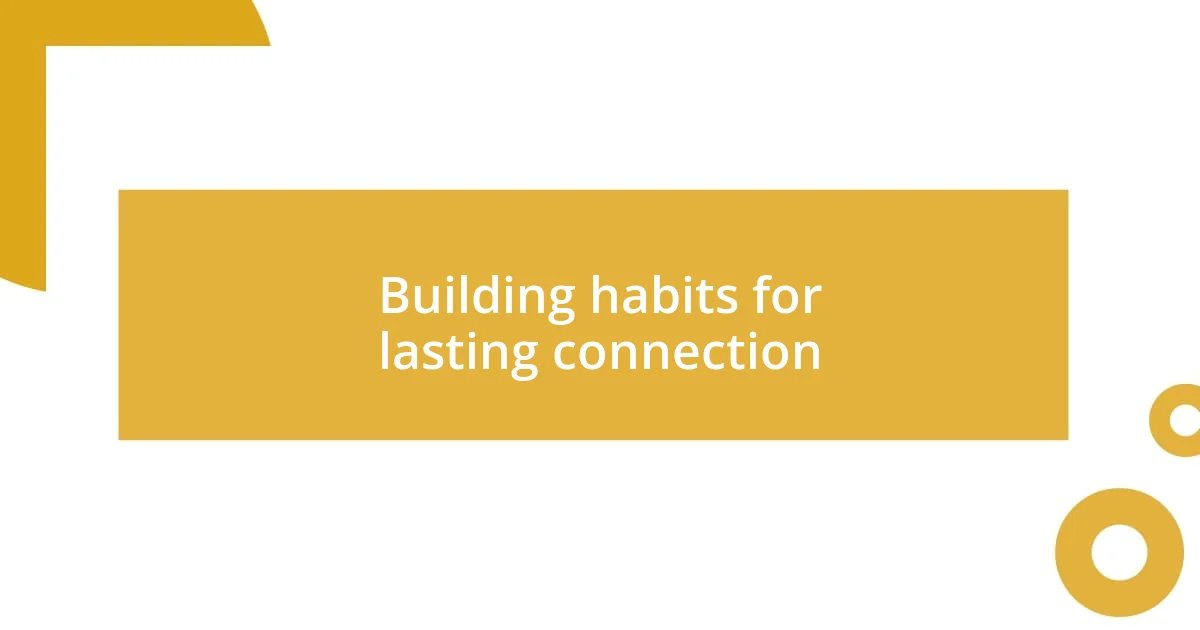
Building habits for lasting connection
Building habits for lasting connection starts with intentionality. I discovered that setting aside specific times each week to connect meaningfully—whether through a heart-to-heart chat with a friend or a family gathering—has profoundly affected my relationships. It’s amazing how just carving out that daily or weekly commitment brings a sense of security and closeness. Have you noticed the difference consistency makes in your connections?
I’ll never forget the time I committed to a monthly check-in with my closest friends—just a simple dinner where we could share life updates, challenges, and laughter. Those evenings became a sacred space; each roasted meal was a reminder of our shared history and the importance of nurturing bonds that matter. Could you imagine creating a ritual like this? It can transform an ordinary relationship into something deeply fulfilling.
Another habit I’ve embraced is practicing active listening. When my partner shares about their day, I focus entirely on them, putting my phone away and genuinely engaging. It’s remarkable the impact this small shift has made—not only do they feel valued, but I find a deep sense of joy in our conversation. What would happen if you dedicated your full attention to those you care about? I believe the connections we build this way have the potential to last a lifetime.
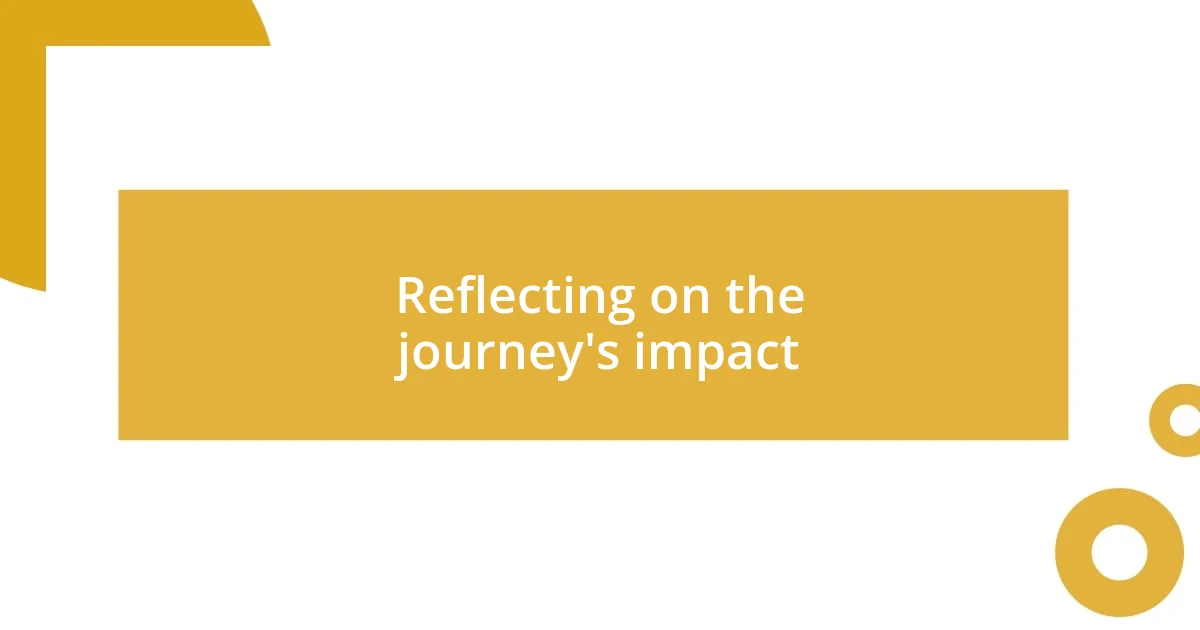
Reflecting on the journey’s impact
Reflecting on my journey has revealed just how transformative stepping back can be. After disconnecting, I noticed a clarity that I hadn’t felt in years. It’s almost like someone peeled away the layers of distraction, allowing me to recognize what genuinely matters in my life. Have you ever paused long enough to realize how much you’ve been missing out on?
One significant shift was in my approach to relationships. As I distanced myself from constant technology and the busyness of day-to-day life, I found deeper connections with my loved ones. In those quiet moments without screens, I started to listen in ways I’d forgotten how to. It reminded me of family game nights in my childhood—everything felt vibrant and alive when we truly engaged. Don’t you think those moments of connection often last longer than most fleeting interactions?
Moreover, the emotional impact of my journey was profound. I remember feeling a weight lift, as if I’d shed an old coat that no longer fit. It was during a contemplative walk under the stars when I thought about how reconnecting with myself allowed space for vulnerability. Isn’t it freeing to acknowledge our emotions fully? It made me realize that embracing vulnerability can be a powerful step toward authenticity and healing.
